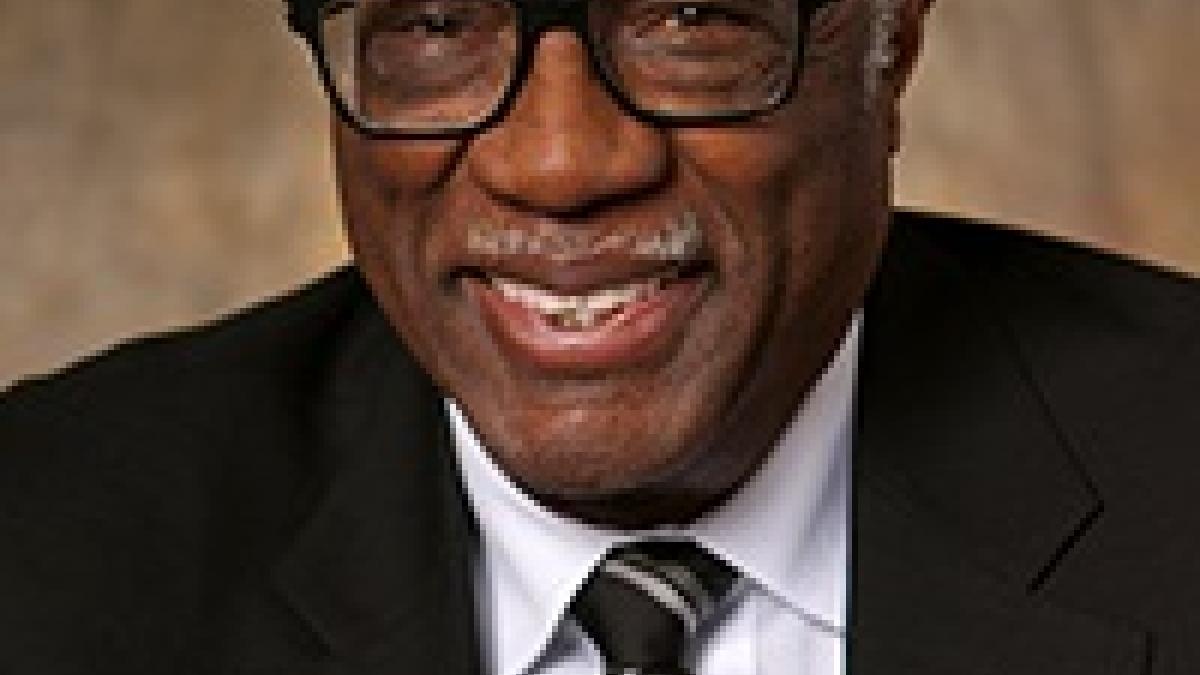Multicultural education expert joins ASU's 'Inside the Academy'

Recognized globally as the “father of multicultural education,” James A. Banks is the latest esteemed scholar to be interviewed for Arizona State University’s “Inside the Academy.”
The free, open-source online archive of conversations with America’s “best of the best” education luminaries was created by Audrey Amrein-Beardsley, associate professor in ASU's Mary Lou Fulton Teachers College. The Banks video interview delves deep into the influential educator’s career-long quest for social justice in K-12 classrooms, first in the U.S. and now worldwide.
Growing up in segregated rural Arkansas, Banks explained that he comes from “a long pedigree of farmers and Southerners” and even worked picking cotton as a child. One of his most poignant memories was as a first grader walking five miles to school, with other African-American schoolmates joining him along the way.
“I remember that the white kids would pass us riding in school buses that splattered mud on us,” Banks recalled.
Later on in high school, Banks said he started seeing fellow students who were “as bright as I (was) or brighter” falling by the wayside. It triggered a recurring dream for him, in which he created a school in the South where African-American students could thrive.
“I developed a real strong commitment to make it possible for kids who were black and poor to be successful,” he said.
Today, Banks serves as the Kerry and Linda Killinger Professor of Diversity Studies and director of the Center for Multicultural Education at the University of Washington in Seattle. A past president of the American Educational Research Association, Banks is perhaps best known for co-editing the groundbreaking, “Handbook of Research on Multicultural Education,” with his wife and colleague, Cherry A. McGee Banks. This seminal work is one of a total of 100 journal articles, 60 book chapters and 20 books he has authored or co-edited.
It was Banks’ doctoral dissertation – an extensive content analysis of how African-Americans were portrayed in the nation’s K-12 textbooks – that launched his scholarly quest to study multicultural issues. He said his thesis found the textbooks generally restricted mention of African-Americans to slavery, depicting all slaves as “happy,” and three famous figures – Booker T. Washington, educator; George Washington Carver, scientist; and Marian Anderson, contralto singer.
Being at the forefront of multicultural research, Banks set a career trajectory that opened space for a new generation of scholars. It also led him to develop the widely recognized five dimensions of multicultural education, including content integration, knowledge construction, equity pedagogy, prejudice reduction and empowering school culture. This conceptual framework is intended to help teachers of all disciplines understand that “multicultural” needs to span all aspects of K-12 education, not simply content.
Banks said his determination to work for social justice in education has been a powerful motivator for him personally and professionally. He added that his efforts also continue to expand to encompass additional minority and ethnic groups in the United States and around the world.
“I always tell my graduate students to study something they have a passion about,” he said. “That is what keeps you going.”
Written by Judy Crawford
Media contact: